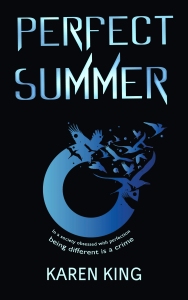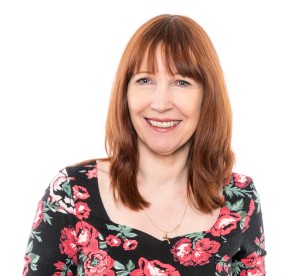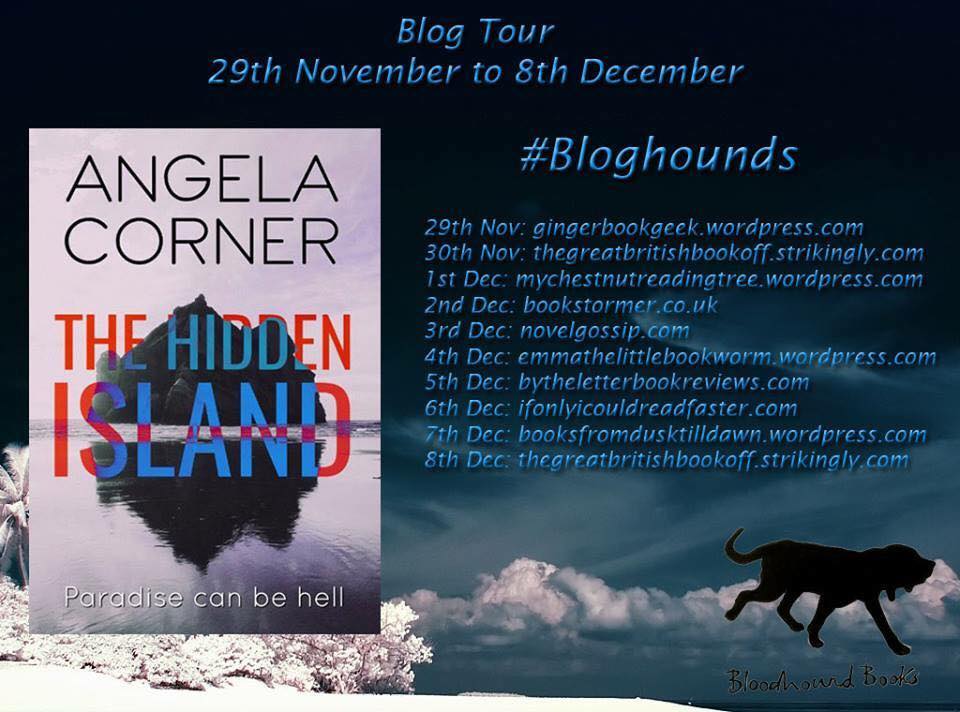
It’s always exciting when a new imprint bursts onto the scenes, especially when it is an imprint that focuses on crime fiction, which is my favourite genre. So I’m delighted to be part of the blog tour for the first two books by Black Thorn books. Unfortunately, I wasn’t able to squeeze in reading either of the books, although I really did like the sound of them both. Thankfully David Hewson, author of The Savage Shore was kind enough to write a guest post for us, about how to research a book. I’m sure that it will be interesting to those who are writers and those that aren’t. Thanks David for stopping by!
Here is a bit more about Black Thorn before the post itself. Enjoy!
Independent publishing powerhouse Canongate has announced the launch of its new crime fiction imprint, Black Thorn. From psychological thrillers to police procedurals, and from historical detective dramas to heart-thumping suspense stories: Black Thorn intends to seek out and publish compulsive, high quality crime thriller fiction.
Officially launching in May 2019 with 4 titles, Black Thorn will focus on a variety of crime thriller audiences, providing them with compulsive titles from both new and old authors. On 2nd May, crime master David Hewson will launch The Savage Shore, the latest instalment in his tremendously popular Nic Costa series alongside debut American author Catherine O’Connell’sThe Last Night Out. Then on 6th June master of the modern who-dunnit Simon Brett will launch The Liar in The Library and Caro Ramsay, author of the critically acclaimed DI Anderson and DS Costello series, will present The Suffering of Strangers.
How To Research A Book by David Hewson.
Before I became a novelist I was a journalist. Research – hunting down facts, sometimes ones that don’t want to be found – is second nature. I’ve written more than 30 novels over the last quarter of a century and every one of them has involved extensive research. This isn’t because I want them to be ‘true’. They’re not. They’re fiction. Even on the rare occasion I’ve included real-life characters from history I’ve never pretended they’re accurate portrayals. Writers of fiction rarely do that. Even Shakespeare mangled the truth to a huge degree in depicting Macbeth, Richard III and other historical figures in his drama.
No, research is there to provide the bedrock of a story. To kid the reader into thinking your lie is really a version of the truth. That becomes so much easier if you can talk them into becoming a part of a world they may already know just a little, then convince them they’re meeting a bigger, more colourful version of it through the cleverness of an author who knows his or her stuff.
Research, then, is a fundamental part of building the world behind a story. After all these years I have a very practical and well-established way of going about.
First… read.
Yes, writing depends on reading, something a few budding authors tend to forget. If you don’t consume the work of authors you won’t begin to understand structure, style and craft, all the things you need to write yourself. The Savage Shore is set in Calabria, the toe of Italy, a part of the country few people know, even many Italians from other regions. That made the research for this story even more interesting. I perused history books, an old academic tome about the strange society of the communities dotted away in the mountain region of Aspromonte. Then a publication from the EU which investigated the background of the local shadowy crime organisation, the ’Ndrangheta. Some tourist guides, naturally, and a century-old travelogue of the area, Old Calabria, written by a dodgy English writer, Norman Douglas, who was to die in a religious hospital Capri in 1952 after a rather scandalous life, uttering the timeless last words, ‘Get those fucking nuns away from me.’
Head filled with facts I then start visiting my target area. You can’t fly directly to this part of Italy from the UK. The closest you can get is Lamezia Terme from Stansted with Ryanair (who lost my luggage the first time out and couldn’t give a damn). Several trips later though I had a notebook filled with ideas about locations I could pillage and a copious file of photos. Pictures are important to me because I tend to think visually. Calabria is a natural place for this. Much of the action in The Savage Shore takes place in the part which overlooks the Strait of Messina, with Etna looming in Sicily across the water. At night, in the hills, you can see the glow of the volcano. During the day eagles soar effortlessly in the breeze down to the coast. The fields are full of a fruit you’ll scarcely see anywhere else in Italy – the bergamot, a citrus used for perfume and the scent of Earl Grey tea. The Calabrians live in one of the poorest parts of the country, but they are immensely proud of what is theirs. Another local delicacy too is the swordfish which gather in the strait during summer and are hunted by harpoon using techniques centuries old, a practice which Nic Costa will face himself during the course of the book.
Lastly, I will always take a run through local cemeteries snapping headstones. A book needs names, and there’s no better to find ones for your local characters than on a grave.
Pictures, thoughts, notes, facts, names. Those are the building blocks of a book’s world for me. Until I have them I can’t write a word because the characters I work with and the story that follows must emerge from that world, and be unique in the sense that the tale I tell could happen nowhere else.
That is definitely true of The Savage Shore. From the bergamot plantations in the hills to the harpoonists looking for swordfish in the glittering blue sea, from the hidden mountain chapels to the grimy criminal corners of the city of Reggio, this is the Calabria I wanted to portray.
Is it ‘true’?
Some of it. Not that external truth matters in fiction, only the inner: does this world feel real to the reader? Am I transporting them to a place they’ve never known, but one they can see and smell and feel and hear?
That’s the test of my kind of book. I put a lot of work in to try to make it happen. If you find your way to The Savage Shore I hope you get the scent of bergamot and the salt tang of that wonderful stretch of the Mediterranean as it runs along the ragged coastline of Calabria. It’s a magical place to be… and to write.

Detective Nic Costa finds himself a stranger in a strange land when he’s sent to infiltrate the mob in a remote part of southern Italy.
Roman police detective Nic Costa has been sent undercover to Italy’s beautiful, remote Calabrian coast to bring in the head of the feared mob, the ‘Ndrangheta, who has offered to turn state witness for reasons of his own.
Hoping to reel in the biggest prize the state police have seen in years, the infamous Butcher of Palermo, Costa and his team are aware the stakes are high. But the constant deception is taking its toll. Out of their depth in a lawless part of Italy where they are the outcasts, not the men in the hills, with their shotguns and rough justice, the detectives find themselves pitched as much against one another as the mob. As the tension rises, it’s clear the operation is not going to plan. Is Nic Costa getting too close to the enemy for comfort – and is there a traitor among them …?
About the Author:
David Hewson is a former journalist with The Times, The Sunday Times and the Independent. He is the author of more than twenty-five novels including his Rome-based Nic Costa series which has been published in fifteen languages, The Savage Shore is the latest instalment in this critically celebrated series. He has also written three acclaimed adaptations of the Danish TV series, The Killing.





 J.F. Kirwan is the author of the Nadia Laksheva thriller series for HarperCollins. Having worked in accident investigation and prevention in nuclear, offshore oil and gas and aviation sectors, he uses his experience of how accidents initially build slowly, then race towards a climax, to plot his novels. An instructor in both scuba diving and martial arts, he travels extensively all over the world, and loves to set his novels in exotic locations. He is also an insomniac who writes in the dead of night. His favourite authors include Lee Child, David Baldacci and Andy McNab.
J.F. Kirwan is the author of the Nadia Laksheva thriller series for HarperCollins. Having worked in accident investigation and prevention in nuclear, offshore oil and gas and aviation sectors, he uses his experience of how accidents initially build slowly, then race towards a climax, to plot his novels. An instructor in both scuba diving and martial arts, he travels extensively all over the world, and loves to set his novels in exotic locations. He is also an insomniac who writes in the dead of night. His favourite authors include Lee Child, David Baldacci and Andy McNab.

